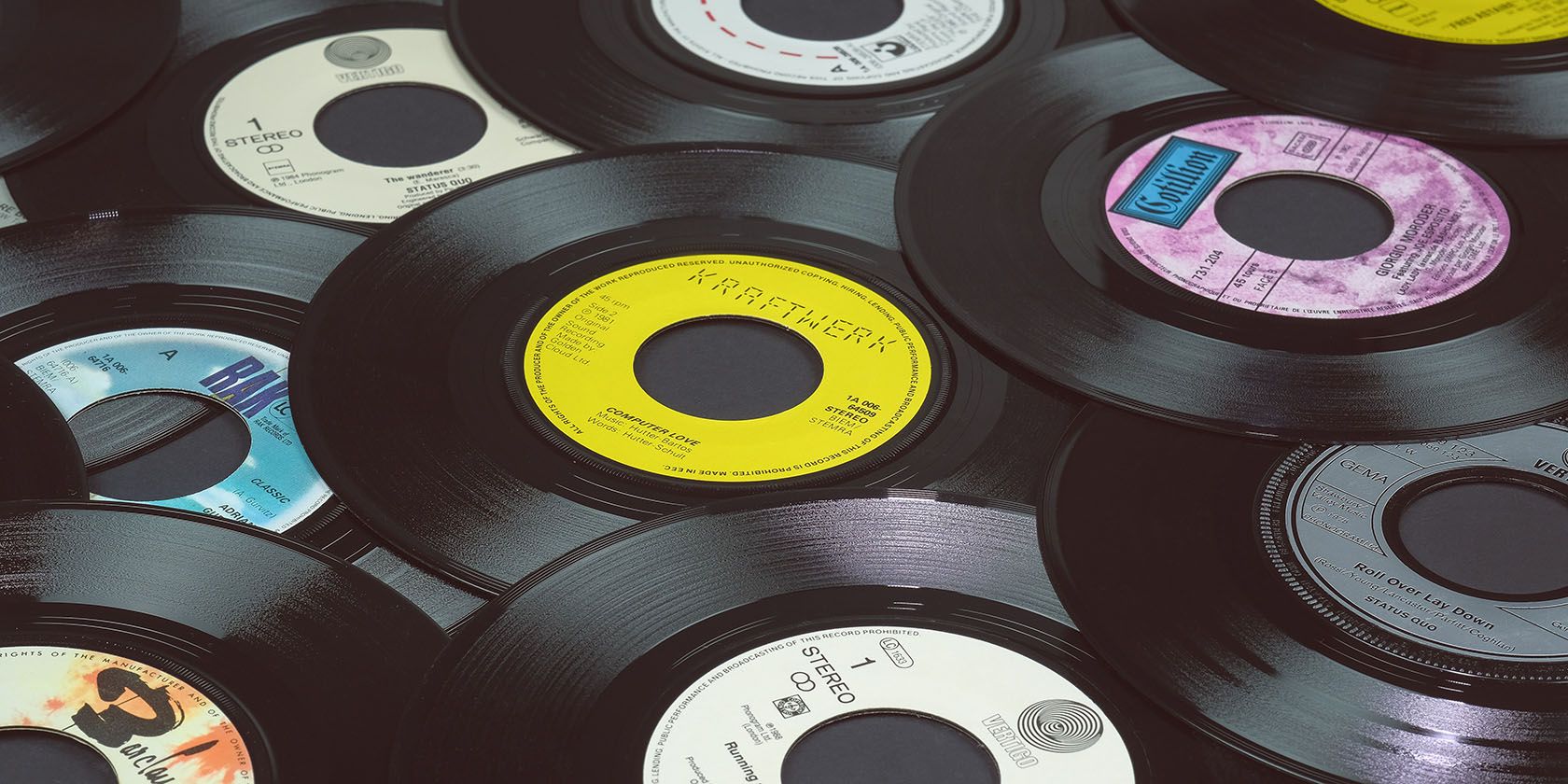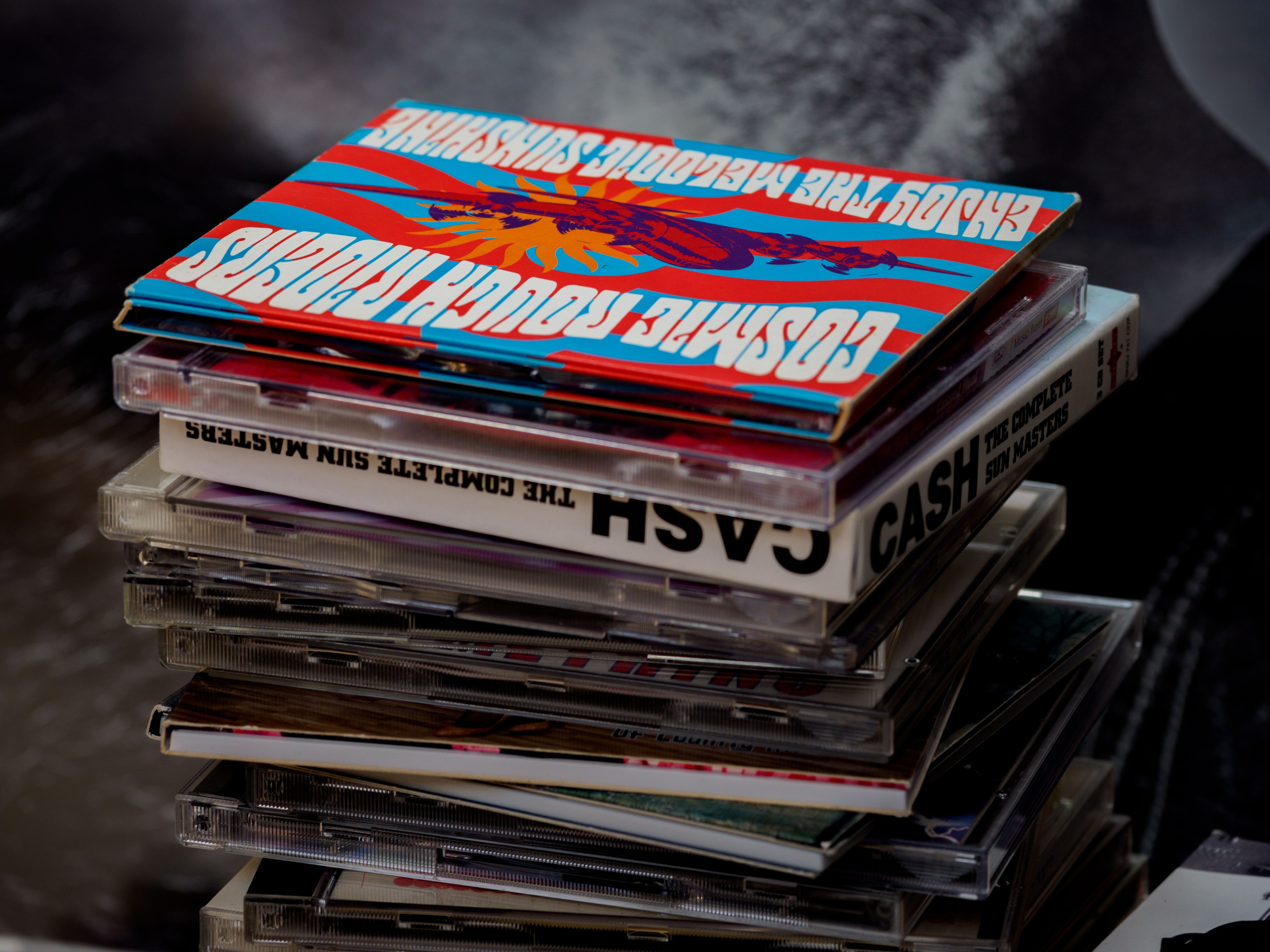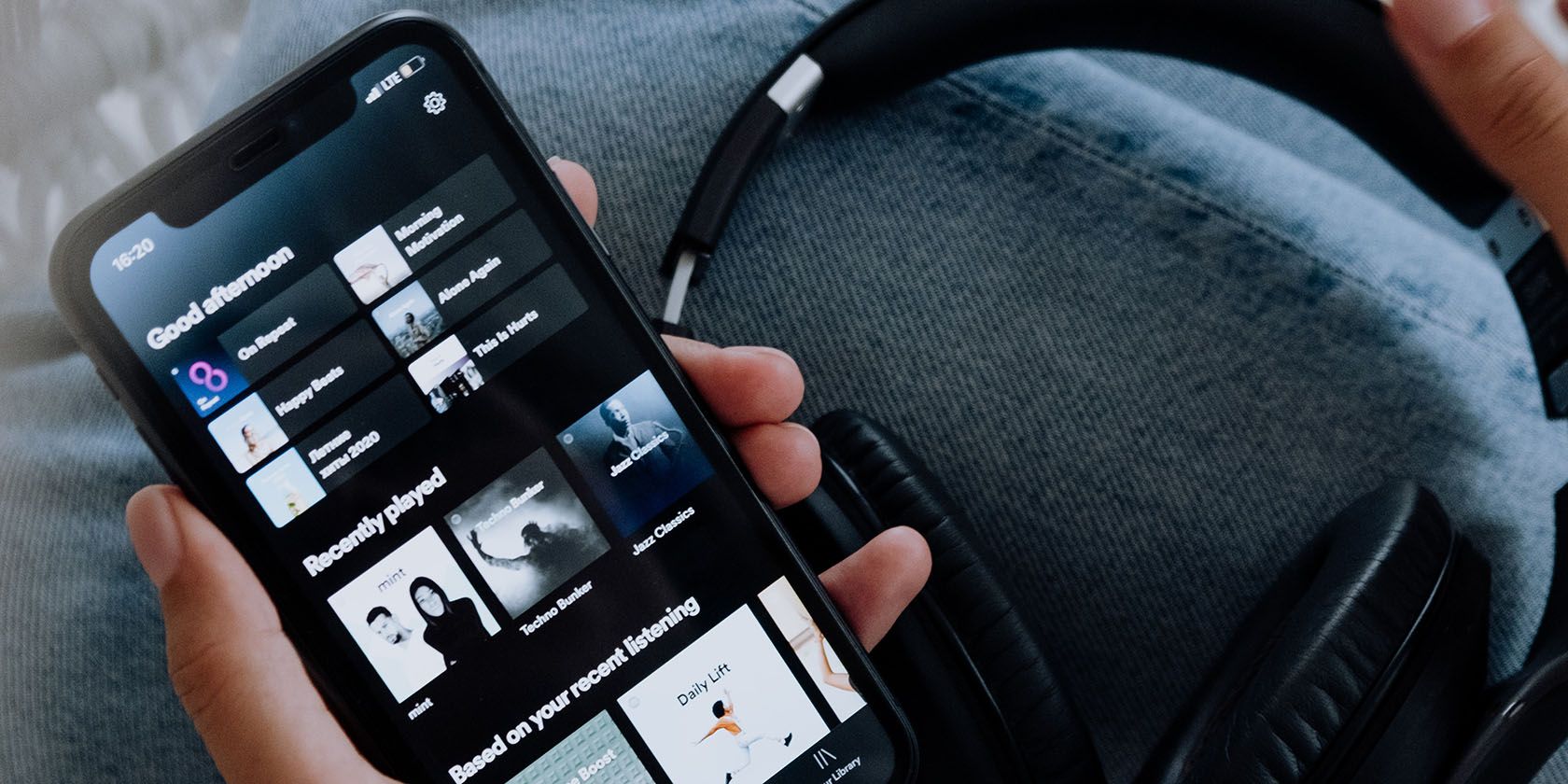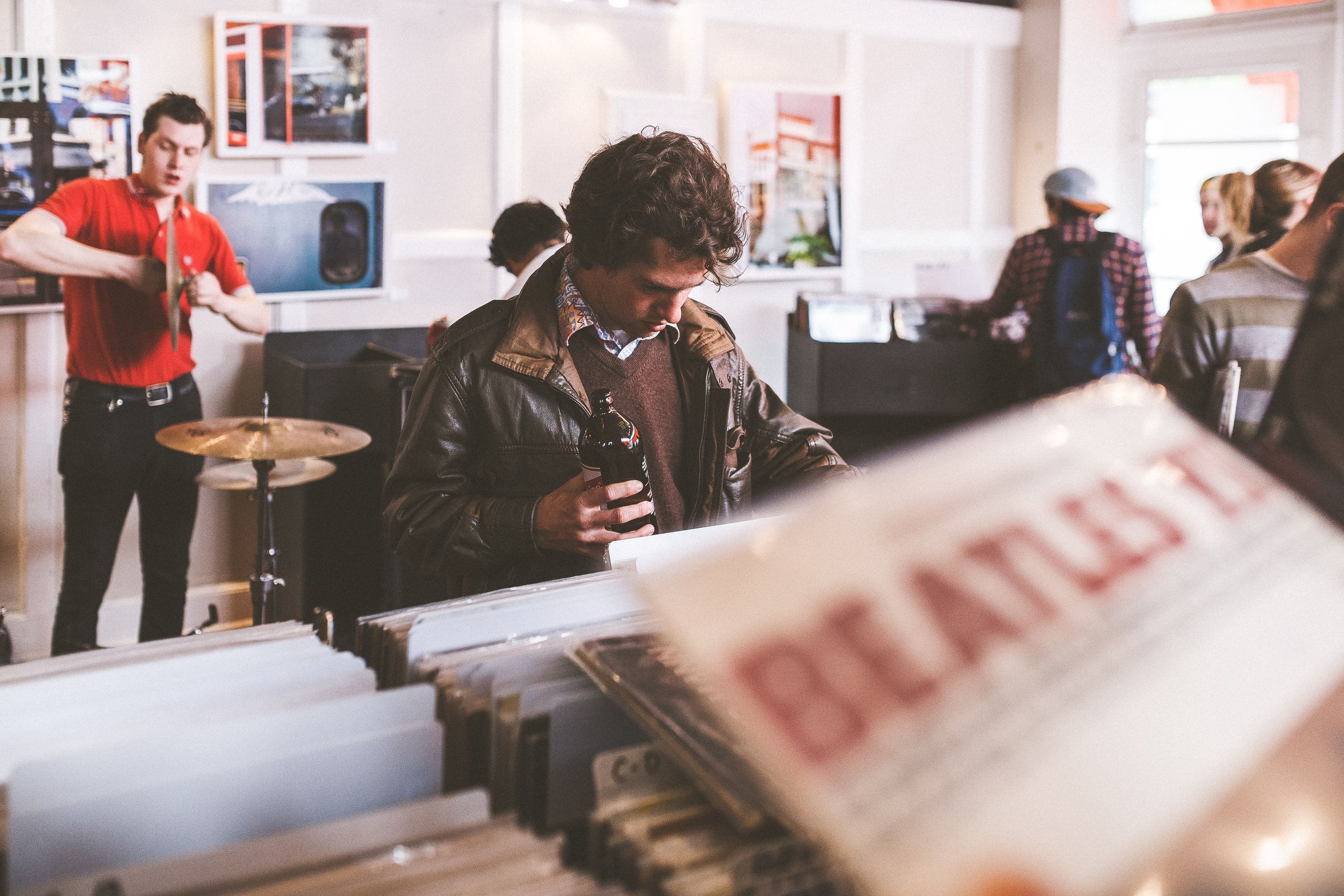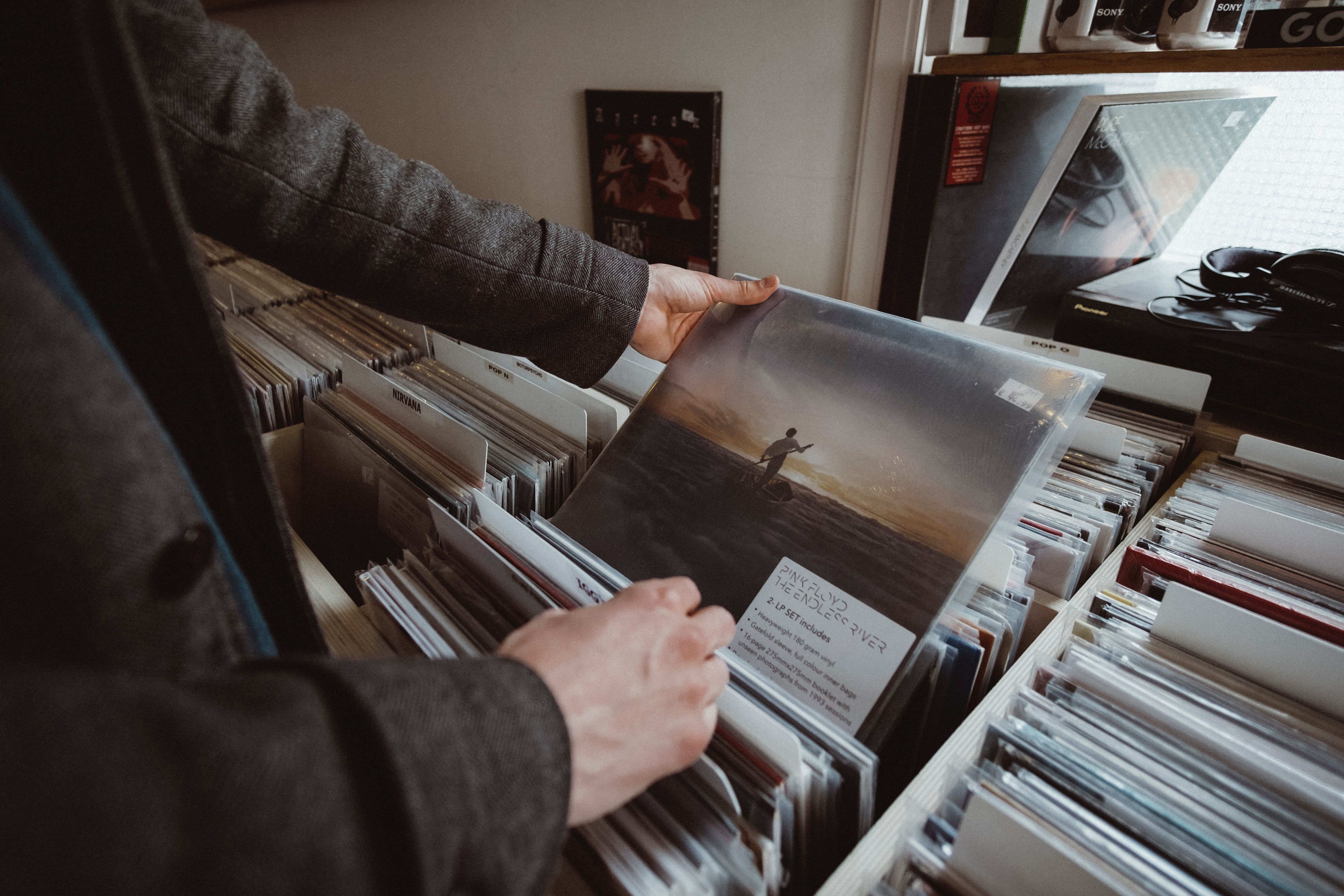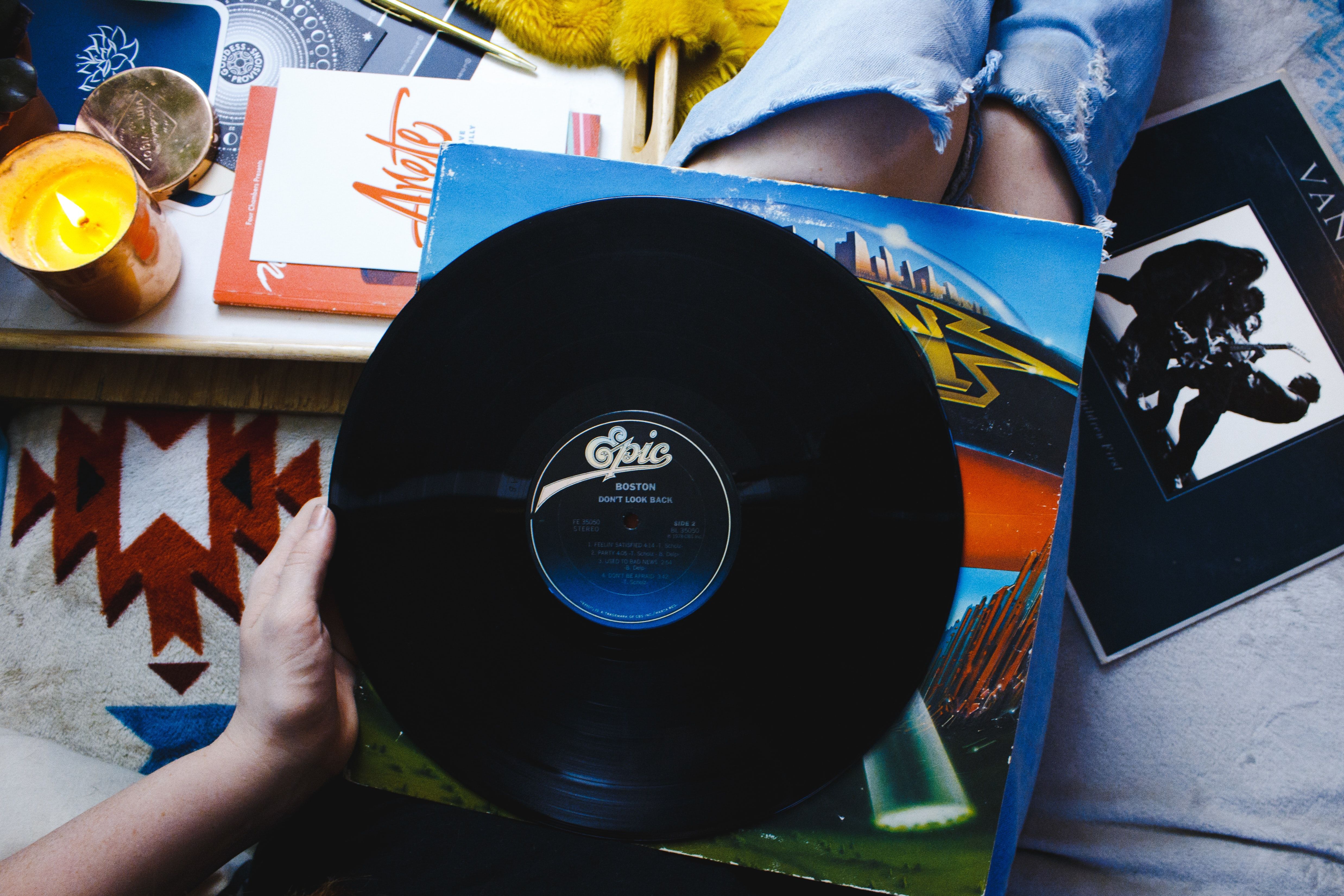Many music lovers are pulling back from the world of streaming and online music videos, opting for a different kind of listening experience. In 2020, vinyl records outsold CDs for the first time in decades.
With so many more convenient options to listen to music, an increasing number of people are choosing to do things at a difference pace. We're going to explore why people are still buying vinyl records.
Why Are Vinyl Records Unique?
When a vinyl spins, it creates vibrations. These vibrations turn into electronic signals that generate a signature sound when amplified.
Every vinyl record player or turntable uses a stylus with an industrial gemstone needle, such as a diamond attached to the arm. This stylus reads the grooves on the record, creates the vibrations that mirror the original sound’s waveform.
This analog output is why no information is lost. Traditionally, a vinyl record can reproduce a sound that is as close as possible to the original recording, without suffering from digital compression. The very nature of vinyl produces a different sound, unlike digital which often results in flat and loud audio.
However, vinyls are expensive to produce, store, and sell. At vinyl's inception, not everyone could also afford the players that could play these records. This made it difficult for producers and artists to reach as many people as possible. So, when the option to produce music digitally popped up, many creators quickly jumped on the trend.
The Rise of Digital
When the CD was first released, it quickly changed the way most people listen to music forever. Artists could reproduce music easier, faster, and more affordably. In comparison to vinyl records, CDs can also hold a lot more songs for significantly cheaper price. For music lovers, it was a great to get bang for your buck.
The era of digital music has aided the commercialization and democratization of music production. However, it did come with some caveats. Unlike vinyl, digital recording through CDs is not able to capture a complete sound wave. Digital recordings can only approximate sounds with a series of steps which may sound similar to the original record but not entirely the same.
Because digital recordings sound good enough for most people, they quickly became the standard way for artists to share their music. After several years, this preferred format for listening has shifted from CDs to what we know as music streaming.
The Age of Music Streaming
Streaming has made it possible for many artists to be heard worldwide, even without record labels and exclusive distributors at their disposal.
Companies like Spotify, Pandora, and Apple Music work to share music from millions of artists on their platforms. In exchange, users listen to ads or pay monthly subscription fees.
In the age of streaming, ubiquity is the main selling point. We hear music from coffee shops, commercials, and shopping malls. We don’t even need a bulky music player and can listen through our smartphones or other portable devices. But while music is something that we constantly have around, it has slowly become something that few of us actually enjoy.
Why Are People Still Buying Vinyl?
In a world of streaming, listening anytime and anywhere is the gold standard. But what exactly is special about vinyl that means it's finding its feet again in the modern age?
1. Buying Vinyl Is An Experience
While it is possible to hear a whole album online, many vinyl lovers still crave the thrill of finding new music in person. In many ways, buying vinyl is a lot like dating.
Choosing a vinyl is a very tangible experience—going to a specialty store, asking for recommendations, rummaging through aisles, and listening to different records for hours… all before taking it home.
2. Listening to Vinyl Is An Event
Unlike music streaming which is readily available on almost every mobile device possible, a vinyl record can only be listened to on vinyl players that unapologetically take space.
While at first, it may seem like a handicap, the vinyl player physically reminds people that great music deserves your full attention. Here's our picks for the best record players.
3. Vinyl Records Have a Distinct Sound
These days, many of us are used to hearing music in its compressed format that sacrifices quality over quantity. Vinyl records are different because they retain the original quality of how artists intended them. With this, a song on Spotify will pale in comparison to the depth, warmness, and texture of a well-maintained vinyl record.
4. Purchasing Physical Products Supports Artists
While streaming can be incredibly profitable for popular artists, most performers can barely make a living wage on streaming platforms alone.
Purchasing vinyl records and other forms of physical merchandise are great ways to support your favorite artists and help make sure that they can continue to produce their music. For music lovers that want to help immortalize their music outside the internet, vinyl records can do just that.
5. Vinyl Records Are Investments
Lastly, unlike streaming sites that license music, vinyl records can be owned. With an increasing interest in buying and selling vinyl records, collectors are beginning to see its vast potential as an investment vehicle. Vinyl records by popular artists, especially those in good condition, often do not just retain their value, but also increase exponentially with time.
The Quiet Rebellion of Slow Listening
With all this in mind, it’s important to remember that listening to vinyl is not a perfect experience. As time passes, a vinyl will wear and tear, leading to changes in the sound. With vinyl, you can expect surface noise like crackles and pops and general quality inconsistencies.
However, many vinyl enthusiasts may say this is part of its charm. With time, there will never be another vinyl that sounds the same as yours. Each vinyl owned would then tell the story of how many times you have listened to it. It will be a sound unique to you and no one else.
There is a delicateness to the way you must take a vinyl out from its sleeve, slowly lift it from the sides, and place it with the utmost care. Both in its size and how it is played, listening to vinyl requires a presence of mind that is almost therapeutic.
Despite decades of innovation in music listening, the resurgence of vinyl is proof of how great technology can stand the test of time. With rose-colored glasses, listening to a vinyl takes us back to a time when music was the entertainment and not simply as background noise. There is a rawness to listening to a song on analog; a sound that is fuller, deeper, and unrivaled by any other form aside from a live performance.
Vinyl Listeners Reject the Culture of Convenience
The unexpected rise of vinyl sales is a reactionary tale, a quiet rebellion that is driven by a desire to slow down and reject the culture of convenience. While there are easier ways to get our favorite tunes, many people are realizing that not everything is about ease. For some of us, it is about slowing down and truly savoring the music.

